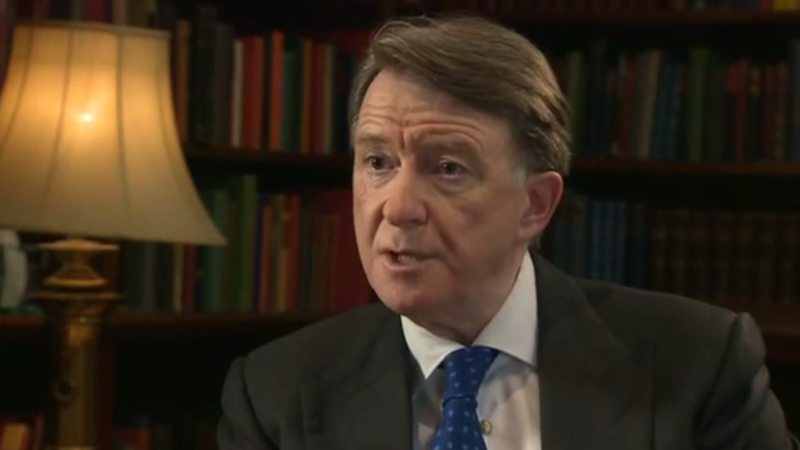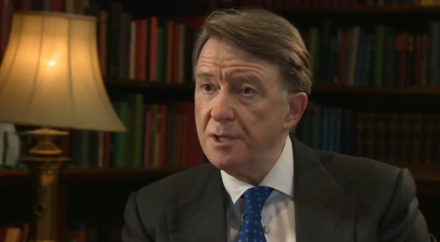
There’s a fascinating insight into the current state of British politics (and the general election campaign) from one of its most interesting figures in the FT today. Peter Mandelson has written a letter in which he notes that across Europe “disenchantment has gone too deep to be rescued by economic upturn”, that this disenchantment accelerated during the global financial crisis, but has roots that extend long before that. He also explains why the budget – and other events and interventions that traditionally act as political game-changers – no longer have the same impact, stating “the two main parties will discover traditional electoral levers and buttons are just not working as they have in the past”. That’s quite similar to the Jon Cruddas refrain about pulling levers in Whitehall.

Perhaps the most interesting section of the letter though is on political strategy. Mandelson warns that “Mr Cameron risks not cutting through to voters who do not want to be spoken to in the time-honoured Tory way. Mr Miliband risks forsaking some of the centre ground support that might otherwise go to Labour”, but suggests that there is positive news out there for Labour as “recent individual constituency polling would seem to offer hope that Labour’s campaigning is showing more success”.
You can read the letter in full below:
——
Sir,
Gideon Rachman is spot on in his analysis of European politics (“Growth will not save Europe from extremists”, March 24): disenchantment has gone too deep to be rescued by economic upturn. Before the financial crisis, around 75 per cent of voters supported the mainstream parties but have since started turning outwards to populist parties to make their protest and the comparable figure of mainstream party support is nearer 55 per cent. But this decline did not just start now. Politics has been growing more fragmented and more personalised for decades as voters shop around, gradually dropping traditional loyalties and voting habits based on well-worn class and geographical identities. If you add to this the parties’ inability to tell a coherent story about the origins of the financial crisis and the policy responses to it, or to tell a compelling story about the future, the current polls are not hard to understand.
In Britain, this phenomenon goes some way to explain why the polls are not moving in response to apparently more hopeful news and events. To many voters, the Budget and other attempts to talk up the economy are just more Westminster noise from politicians who are less trusted or authoritative than ever. As a result, the two main parties will discover traditional electoral levers and buttons are just not working as they have in the past. The interest in the election lies in how the Conservative and Labour parties are coming to terms with this revelation. David Cameron is following a traditional strategy but with greater intensity and discipline on a variation of the traditional Tory proposition that “Now Britain’s getting better, don’t let Labour ruin it” (first wheeled out in the 1959 election). Ed Miliband, on the other hand, is trying to junk business as usual. He believes that a jaded and cynical electorate wants to hear something different and more radical from Labour and is pursuing a more insurgent strategy that he believes will appeal to those who have turned away from the mainstream.
In his approach, Mr Cameron risks not cutting through to voters who do not want to be spoken to in the time-honoured Tory way. Mr Miliband risks forsaking some of the centre ground support that might otherwise go to Labour. It is because we are in such new terrain that the election is so unpredictable. It will probably come down to how effective the two parties are in implementing their respective strategies, with the quality of the arguments and the actual day-to-day campaigning making a difference. For those like me whose old loyalties remain intact, the recent individual constituency polling would seem to offer hope that Labour’s campaigning is showing more success.
Peter Mandelson
House of Lords




More from LabourList
‘Labour is being badly misled on housing’
Reeves bets on patience over populism
‘Energy efficiency changes must work for older private renters’